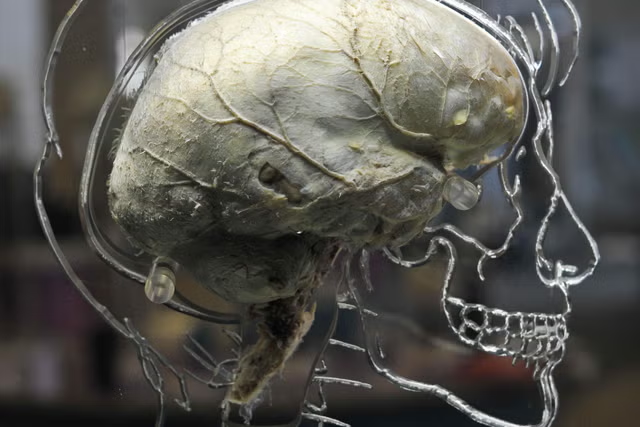Scientists have used AI to reveal a new form of aggressive prostate cancer which could revolutionise how the disease is diagnosed and treated.
A Cancer Research UK-funded study found prostate cancer, which affects one in eight men in their lifetime, includes two subtypes.
It is hoped the findings could save thousands of lives in future and revolutionise how the cancer is diagnosed and treated.
Researchers used AI to analyse data from DNA and identify the two subtypes of cancer.
The study could ultimately lead to tailored treatments to each individual patient according to a genetic test which will also be delivered using AI.
According to Cancer Research UK, prostate cancer is the most common cancer affecting men in the UK, with around 52,000 cases a year.
Dr Rupal Mistry, the charity’s senior science engagement manager, said: “The work published today by this global consortium of researchers has the potential to make a real difference to people affected by prostate cancer.
“The more we understand about cancer the better chance we have of developing treatments to beat it.
“We are proud to have helped fund this cutting-edge work, which has laid the foundations for personalised treatments for people with prostate cancer, allowing more people to beat their disease.”

The scientists worked together as part of a consortium called The Pan Prostate Cancer Group
The research, which involved additional funding from Prostate Cancer Research and involved scientists from the University of Oxford, the University of Manchester, the University of East Anglia (UEA) and the Institute of Cancer Research, London, highlights how a prostate cancer diagnosis can affect physical, emotional and mental wellbeing.
The scientists worked together as part of an international consortium called The Pan Prostate Cancer Group.
They aim to develop a genetic test that, when combined with current methods, can provide a more precise prognosis for each patient, allowing tailored treatment decisions.
Dr Naomi Elster, director of research at Prostate Cancer Research, said: “These results could be the beginning of us being able to take the same ‘divide and conquer’ approach to prostate cancer that has worked in other diseases, such as breast cancer.”
In the study, published in Cell Genomics, the researchers used AI to study changes in the DNA of prostate cancer samples from 159 patients, and identified two distinct cancer groups.
Professor Colin Cooper, from UEA’s Norwich Medical School, said: “This study is really important because until now, we thought that prostate cancer was just one type of disease.
“But it is only now, with advancements in artificial intelligence, that we have been able to show that there are actually two different subtypes at play.
“We hope that the findings will not only save lives through better diagnosis and tailored treatments in the future, but they may help researchers working in other cancer fields better understand other types of cancer too.”
Disclaimer: The copyright of this article belongs to the original author. Reposting this article is solely for the purpose of information dissemination and does not constitute any investment advice. If there is any infringement, please contact us immediately. We will make corrections or deletions as necessary. Thank you.



